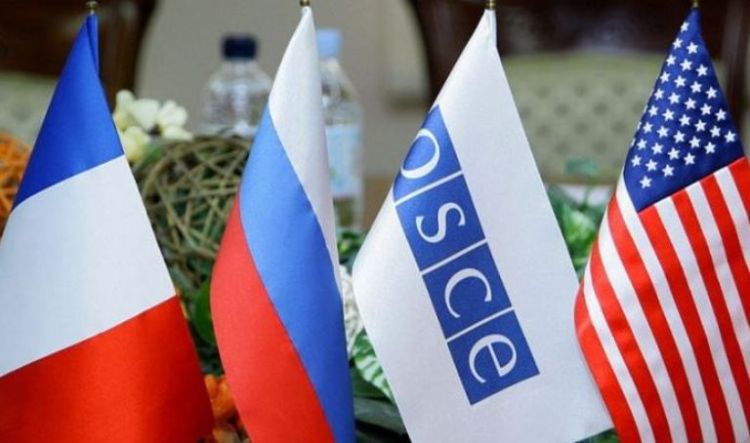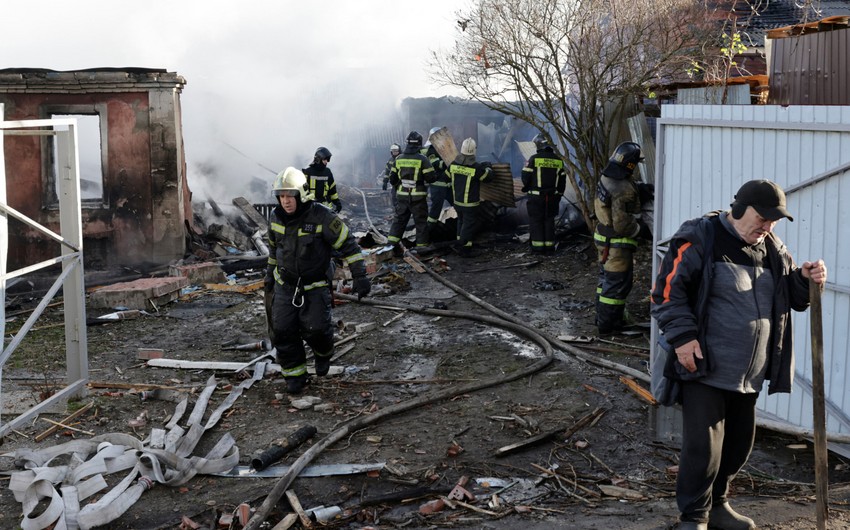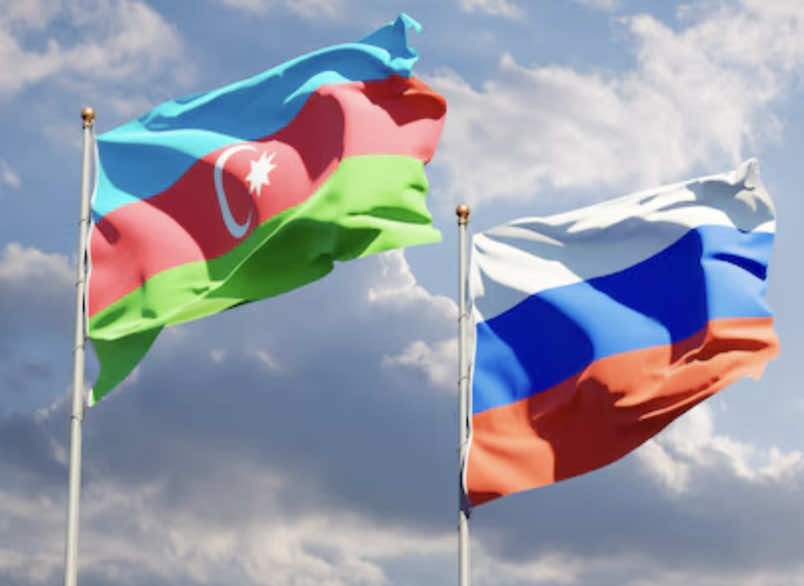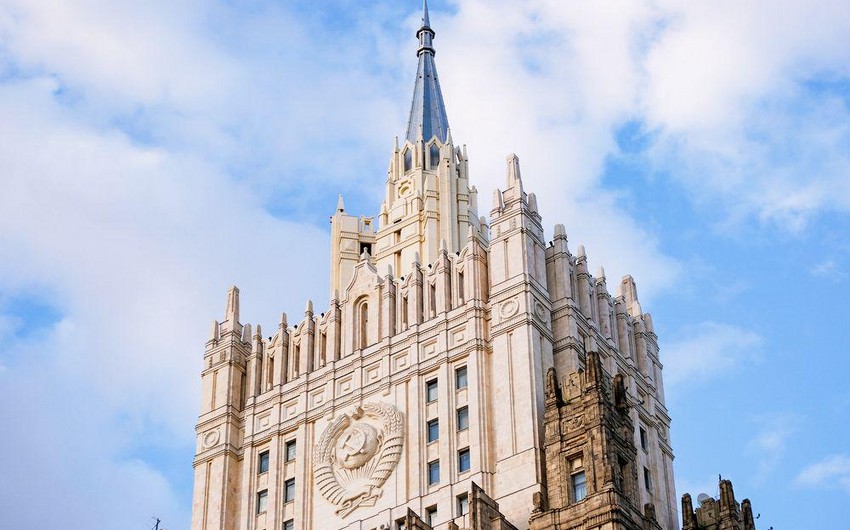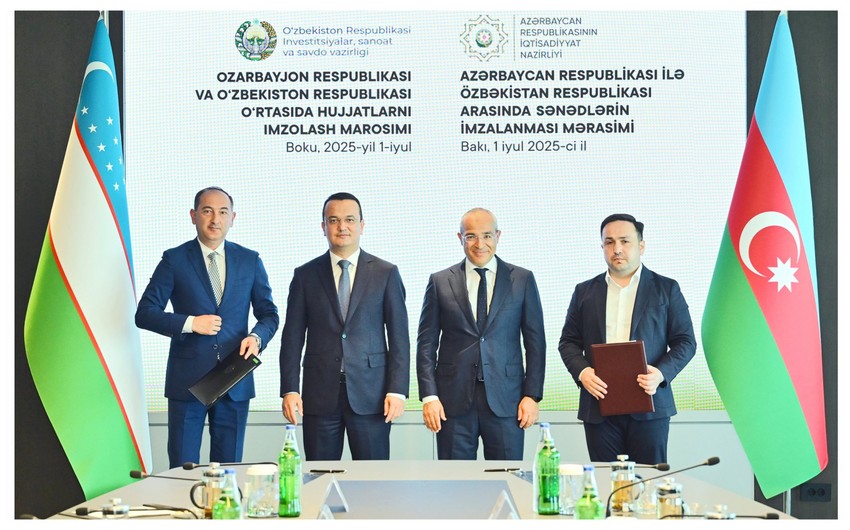Number of experts, both local and external, consider that the OSCE Minsk Group failed and it needs to be replaced with another diplomatic structure, which could find suitable way that Armenia and Azerbaijan agree on the fair and effective solution of the long-term conflict.
Eurasia Diary conducted an interview with Polad Muradli, a research fellow at Topchubashov Center, Baku-based think tank regarding the current activity of the OSCE Minsk Group in Karabakh negotiations, the issue of the responsiblity of the Co-Chairs of the Minsk Group and the possibilities for the revival of peacebuilding measures.

- Do you assume the possibility for the establishment of a new diplomatic structure on the solution of the long-term conflict between two Caucasian states?
- While one could address an ample amount of criticisms toward the work the OSCE Minsk Group has been undertaking during almost the past 30 years, I do not believe any new structure would achieve fundamental changes in the negotiations. The principal problem in achieving the resolution of the conflict has not been the negotiating format, but insufficient political will on the part of the parties themselves. It has always been their responsibility to engage constructively in this effort, to prepare their populations to embrace a peaceful solution, and when an acceptable settlement is crafted to make the compromises necessary to resolve the dispute. While both Armenia and Azerbaijan have actively engaged in the Minsk process, their public positions regarding a possible settlement remain mutually exclusive. They have not prepared their respective populations to accept a true compromise; on the contrary, the conflicting parties have over the past years only hardened their public positions. For instance, while the idea that the occupied adjacent regions to Nagorno Karabakh should be returned back to Azerbaijan is not disputed by the Minsk Group, one could notice increasing Armenian references to these regions as “historic territories” instead of “occupied lands”, and it has become over time significantly more difficult for the Armenian public to consent to giving up the lands to which they have never even laid claim for.
In this respect, the only possibility for the establishment of a new structure, in recent years, appeared in the 2018 Dushanbe meeting between President Ilham Aliyev and Prime Minister Nikol Pashinyan, when the sides agreed to establish a direct communication with each other. At that time Pashinyan had only recently come to power, and the Azerbaijani side expected the new leadership of Armenia to pursue a different policy than its predecessors, thus enabling progress to be made in the negotiation process. This could in prospect lead to a deeper diplomatic engagement between Baku and Yerevan, which could also pave way for further discussions on whether the OSCE Minsk Group could be replaced with a more efficient structure, whose aim would be to bring about a peaceful settlement of the conflict, rather than just maintaining stability. Eventually though, the Pashinyan government recoiled from their peace-oriented discourse, realizing that the Nagorno Karabakh issue had come to work against their interests, as in any solution option after the agreement on mutual compromises, the Armenian side would be forced to make more practical concessions, which might ultimately lead to Pashinyan losing substantial amount of public support. Currently, we are in a situation, where one of two sides to the conflict has openly prioritized maintaining the status quo rather than the resolution of the conflict. And there is basically no “material” for the Minsk Group Co-Chairs or any potential alternative structure to work on.
Hereby, one step to be taken could be about the transparency of the peace talks, and this could bring multiple benefits to the negotiations process. Firstly, the lack of transparency, in fact, has led to the national leaders manipulating the results of the negotiations undertaken behind closed doors, by exaggerating the moments where their interests are being upheld, and understating the others. As a result, both sides attempt to convince their respective audiences, - without the latter seeing it -, that the documents signed during the talks are supporting their respective interests, thus further pushing for a more maximalist narrative against the opposite side, as with the example given above. Achieving transparency, thus, could be effective in avoiding the further manipulation of discourses by the leaders. Secondly, transparency of the negotiations would lead to greater accountability of the mediators, potentially revealing the further deficiencies in their work and forcing them to put greater effort into the conflict resolution process. Thus, referring to the fact mentioned by a renowned American diplomat who once took part in the process, with greater transparency no diplomat assigned to participate in the meetings would be able to avoid them, just to be able to “go home and walk his dog”.
- According to which criteria was Russia, the United States and France elected co-chairs of the Minsk Group? Why wasn’t it possible to include other members of OSCE Minsk Group in co-chairs?
- The initial plan set forth in 1992 for the then Minsk Conference was to gather 11 designated Minsk Conference Members with a single rotating chairman on board. Within the next 5 years of engagement, however, the original formula evolved substantially. Following the 1994 Budapest Summit, under considerable Russian pressure that Moscow should lead the effort, the formula transformed to 2-person co-chairmanship in which one state would rotate (the neutral) and the other (Russia) would not. After the first Minsk Conference single chairmen – Italy followed by Sweden – the chairmanship was shared between Sweden and Russia in 1994, and Finland and Russia in 1995–1996. This transformed in early 1997 to a 3-person co-chairmanship (with Russia, France and the United States) in which all three states have become permanent.
The major reason why these three countries managed to distinguish themselves from the other members of the Minsk Group, I believe, was about their veto-wielding permanent positions at the UN Security Council. The potential resources that the United States, Russia and France were expected to bring to the table in terms of diplomatic power, military and economic influence could hardly be overstated. The engagement of these 3 nations was also seen to provide back then a valued strategic balance of interests that in practical terms had satisfied the conflicting parties to certain extent. In theory, this structure would make it easier for the Minsk Group to achieve the authorization of the deployment of the peacekeeping forces, should there be any need for it.
These above mentioned advantages of the current Co-Chairs, however, have proven to be irrelevant, because of the visible lack of interest from these states to expand their resources for the peaceful settlement in the region, with only Russia out of three willing to deploy peacekeeping forces in Nagorno Karabakh. Also, the aforesaid strategic balance seems to have been tarnished, with the Armenian population having become a significant enough electoral power in France to affect its foreign policy decision making, as well as Russia’s increasingly visible stance in the conflict especially since the July clashes this year.
- Do you think that the second Astana format, consisting of Russia, Turkey and Iran, would be alternative to the OSCE Minsk Group?
- Setting aside the essence of the problem, I would also agree that achieving a fairer and more efficient representation within the mediation structure would bring certain benefits regarding the issue at hand. Fairness implies impartiality, while efficiency requires possessing the tools of pressure on the conflicting parties. The problem is, these preconditions are often contradicting one another. As Russia, Turkey and Iran’s significant diplomatic, military and economic tools of pressure were enough for the second precondition; the so-called second Astana format could come in handy at the initial stage of the conflict when immediate measures were needed to be taken in order to de-escalate the situation. Current conditions, however, require impartial actors with no vested interests in the conflict to act as mediators, - a precondition which fails all three countries mentioned above.
The ineffectiveness of the Minsk Group format is also partly a result of the contradictory national interests of the Co-Chair countries toward the region and lack of commitment, which have contributed to the prolongation of the peace process, further pushing it into a deadlock. With all three aforesaid regional powers competing for influence in the South Caucasus, one could argue that the amount of the outside interest groups intervening and slowing down the negotiations would only increase within the second Astana format. In fact, at least two of three aforesaid countries have been accused of not being interested in the resolution of the conflict between Armenia and Azerbaijan. Nevertheless, Astana format might be helpful only after the conflicting parties and the international community achieve an agreement on the future steps to be taken regarding the conflict, which would create a need for a structure that would overview the implementation of those agreements.
Going back to the abovementioned “fairness-efficiency paradox”, I believe it would be fair to replace the Co-Chairs with actors where interest groups related to the Armenian Diaspora, as well as to the oil and gas industry would not be able to exert significant influence in the foreign policy decision making. In that respect, I absolutely believe it would make much more sense if the EU replaced France as one of the Co-Chairs, as the EU would be more impartial and actually somewhat more interested in the resolution of the conflict in its Eastern Neighborhood. However, who would ensure that the complex bureaucratic structure of the EU would not doom its perspectives as the mediator, especially in light of current disagreements between the European Parliament and the Council?
- How is it possible to make conditions for the representatives of Armenian and Azerbaijani communities to further involve in the discussion of matters on peace and confidence-building measures?
- The incidents between the Azerbaijani and Armenian communities occurred all around the world following the July clashes this year have deemed these perspectives somewhat irrelevant for a certain period, and this will continue until direct diplomatic engagement between Baku and Yerevan is achieved. During the last two years, however, significant developments have been brought about with respect to the establishment of the conducive conditions for the Armenian and Azerbaijani communities to engage. The revitalization of the Azerbaijani Community of Nagorno Karabakh is a case in point, and was a message by the Azerbaijani side that they were ready to begin supporting community-based dialogues as part of wider ethnic reconciliation. Nevertheless, the Azerbaijani Community of Nagorno Karabakh will need to solve certain problems regarding their NGO status and their legitimacy internationally, until there appears another opportunity to engage with the Armenian counterparts.
Interviewed by Yunis Abdullayev
Polad Muradli is a graduate of master in International Security from Sciences Po, Paris School of International Affairs. He specializes in the security dynamics of Central and Eastern Europe, and Eastern Partnership countries.

